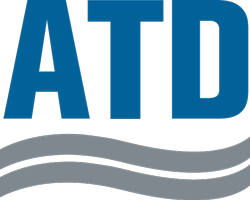Oppose So-Called “Right to Repair” Legislation (H.R. 1566/S. 1379)
ISSUE
Advocates for “right to repair” legislation (H.R. 1566/S. 1379) claim that independent automotive repair shops do not have access to the tools or data necessary to repair vehicles. However, today the information independent shops need to repair vehicles is readily available from every auto and truck manufacturer. This legislation has little to do with repairing a vehicle; instead, the bills would allow vehicle owners to give all technical and compatibility information, software, and technology to any third party they designate “without restriction or limitation.” These bills regulate vehicles only and do not apply to other products, such as farm equipment or mobile phones. Members of Congress should oppose H.R. 1566/S. 1379, which is overbroad, unnecessary and raises serious privacy and security concerns.
BACKGROUND
America’s truck dealers have spent decades making investments in tools, special equipment and employee training to ensure the proper servicing of commercial medium- and heavy-duty trucks. However, H.R. 1566/S. 1379, is overbroad, and treats medium- and heavy-duty trucks the same as light-duty vehicles, although heavy-duty trucks, such as school buses and cement mixers, are sold to businesses and governments, not consumers. Furthermore, the bills ignore the significant differences between light-duty vehicles, which are mass produced for the general public, and medium- and heavy-duty trucks, which are custom-built for specific purposes.
Truck dealers and independent repair shops often work cooperatively, as truck dealers routinely sublet specialty work to independent shops. No data or evidence has been produced by the bill’s proponents showing that there is a withholding of information by truck manufacturers to prevent independent repairers from fixing heavy-duty trucks.
S. 1379 also would greatly expand the Federal Trade Commission’s (FTC) power to expand the definitions in the bill at their own discretion. The bill also requires the FTC to “promulgate regulations” requiring additional paperwork for purchasers, at a time when dealers are trying to streamline and shorten the purchasing process. Failure to comply with this new requirement could result in up to a $51,744 fine per violation.
KEY POINTS
- The bills are overbroad. H.R. 1566/S. 1379 regulate school buses, cement mixers, and medium- and heavy-duty trucks the same as light duty vehicles. Generally, the vehicles truck dealerships sell are not sold to consumers.
- This legislation has little to do with repairing a vehicle. Instead, the main purpose of H.R. 1566/S. 1379 is to compel truck and auto manufacturers to provide any “aftermarket parts manufacturer” the information necessary “to produce or offer compatible aftermarket parts,” i.e., parts not made by the truck manufacturer.
- H.R. 1566/S. 1379 is unnecessary. The information and tools independent shops need to repair medium and heavy-duty trucks is readily available from truck manufacturers and an effective dispute resolution mechanism already exists through the long-standing National Automotive Service Task Force.
STATUS
Rep. Neal Dunn (R-Fla.) reintroduced H.R. 1566, the REPAIR Act in February and Sens. Ben Lujan (D-N.M.) and Josh Hawley (R-Mo.) introduced S. 1379 in April. The ATD Board of Line Representatives sent a letter to House and Senate Commerce Committee leaders opposing this legislation. Members of Congress are urged not to cosponsor H.R. 1566/S. 1379.
Contact

